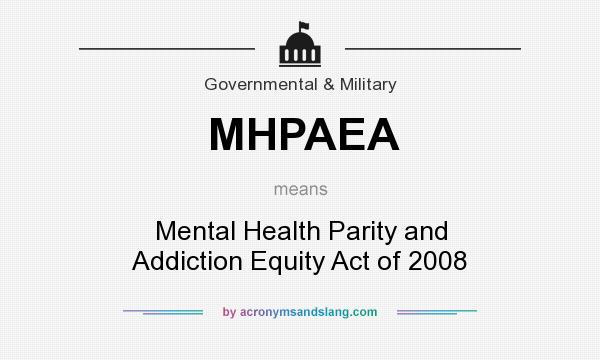There are different types of insomnia. It is essential for you to determine if you have severe or chronic insomnia. Severe insomnia is brief term while chronic insomnia last for a long time or is reoccurring. There is also Go here primary and secondary sleeping disorders. Main insomnia indicates you are having issues sleeping but those issues are not associated with a health issue.
Insomnia can slow psychological processing making it tough for psychological health treatments to work. This indicates recovery can take longer for individuals who are lacking sleep. For instance, if you are a recovering addict, insomnia Find more information can make the recovery process harder and lead to relapse if not dealt with. It can likewise cause additional damages.
There will be no misinterpreting it for something else. You will be moody, hungry, and irritable and have a difficult time concentrating or staying concentrated on jobs. Each and every single thing will get on your nerves and you will find it hard to control your state of mind swings. Research study has actually shown that a person losing even one night of sleep can be compared to that of a person who is lawfully intoxicated individual.

If you are driving unpredictably due to sleep deprivation, that may be considered careless driving. Think about it, you might truly hurt somebody or yourself if you are driving while sleep denied. Numerous news stories center on mishaps that took place because a motorist fell asleep at the wheel. There has actually been research studies done on individuals who go extended durations of time without sleeping.

There have been some to report total character changes, from a happy character to mad personality, and it did not alter back to delighted even after getting an excellent quantity of sleep. Sleep deprivation can affect your work abilities likewise. What if you are an air traffic controller or a brain surgeon? You need to be the most alert you can be.
Get This Report about Why Mental Health Affects Us All
As soon as you figure out how to get great sleep, you will have the ability to quickly carry out such methods into your life and rapidly feel the results of excellent sleep. There are numerous strategies you can use to ensure you get a great night's sleep. Ensure you do not have a lot of distractions like the television or radio playing.
This will assist your body get used to when it is expected to get up and drop off to sleep. Exercising throughout the day can help you rest much better in the evening but should be done at least three hours before you go to bed - how your physical health affects your mental health. If for some factor you still can't go to https://diigo.com/0iqafo sleep, engage in a relaxing activity such as a warm bath or reading.
Also, do not take naps late in the day and ensure you have a great sleep environment. If you are not having any luck fixing your sleep problems after trying numerous of these methods, it would be a good concept to meet with a counselor to assist you find out what is actually wrong with your sleep patterns.
By working through concerns related to your mental health, your sleep issues may repair themselves. Sleep is extremely essential. Making sleep a top priority in your life will lead to favorable results. So put yourself initially and get some great rest! - how unemployment affects mental and physical health.
Many people understand firsthand that sleep impacts their frame of mind. After all, there's a factor it's stated that someone in a bad state of mind "woke up on the wrong side of the bed." As it turns out, there's rather a bit of reality behind this colloquial stating. Sleep is closely linked to mental and emotional health and has demonstrated links to depression, stress and anxiety, bipolar affective disorder, and other conditions.
About How Does Socioeconomic Affects Latino Mental Health
Psychological health disorders tend to make it more difficult to sleep well. At the very same time, bad sleep, including insomnia, can be a contributing aspect to the initiation and worsening of mental illness. Both sleep and mental health are complicated problems affected by a plethora of factors, however, offered their close association, there is strong factor to think that improving sleep can have an useful impact on mental health and can be a component of treating many psychiatric conditions.
In NREM (non-rapid eye movement) sleep, general brain activity slows, however there fast bursts of energy. In Rapid Eye Movement, brain activity gets rapidly, which is why this stage is related to more intense dreaming. Each phase contributes in brain health, allowing activity in various parts of the brain to ramp up or down and allowing much better thinking, learning, and memory.
Sufficient sleep, specifically REM sleep, helps with the brain's processing of psychological details. During sleep, the brain works to evaluate and keep in mind ideas and memories, and it appears that an absence of sleep is especially harmful to the combination of favorable psychological content. This can affect mood and emotional reactivity and is connected to psychological health conditions and their severity, consisting of the danger of suicidal ideas or habits.
Instead, it is ending up being clear that there is a bidirectional relationship between sleep and psychological health in which sleeping problems might be both a cause and consequence of psychological health problems. Obstructive sleep apnea (OSA) is another element of sleep that has been linked to psychological health. OSA is a disorder that involves stops briefly in breathing during sleep and a reduction in the body's oxygen levels, creating fragmented and disrupted sleep.
Although more research study is needed to identify the diverse connections between sleep and psychological health, the existing evidence shows that there is a multifaceted relationship that can be affected by many elements in any particular individual's case (veteran mental health how it affects life). The method that sleep and psychological health are intertwined ends up being a lot more obvious by examining what is understood about how sleep is tied to a variety of specific mental health conditions and neurodevelopmental conditions.
Examine This Report about How Eating Healthy Affects Mental Health
Around 75% of depressed people show signs of sleeping disorders, and many individuals with anxiety likewise struggle with excessive daytime sleepiness and hypersomnia, which is sleeping too much. Historically, sleeping issues were viewed as an effect of anxiety, however growing evidence recommends that poor sleep might induce or intensify depression. The trouble in determining clear domino effect reflects what is believed to be a bidirectional relationship in which sleep issues and depressive signs are mutually strengthening.
For instance, for a minimum of some people, a focus on improving sleep might have a corollary advantage of minimizing the symptoms of anxiety. Seasonal depression is a subtype of anxiety that the majority of frequently affects people during times of the year with minimized daytime hours. For example, people in northern climates may experience seasonal depression during the fall and winter season.
Not surprisingly, then, people with seasonal affective disorder tend to sleep too much or too little or experience modifications to their sleep cycles. Every year, stress and anxiety conditions in America affect an approximated 20% of grownups and 25% of teens. These disorders produce excess fear or concern that can impact everyday life and create threats for illness consisting of heart problem and diabetes.